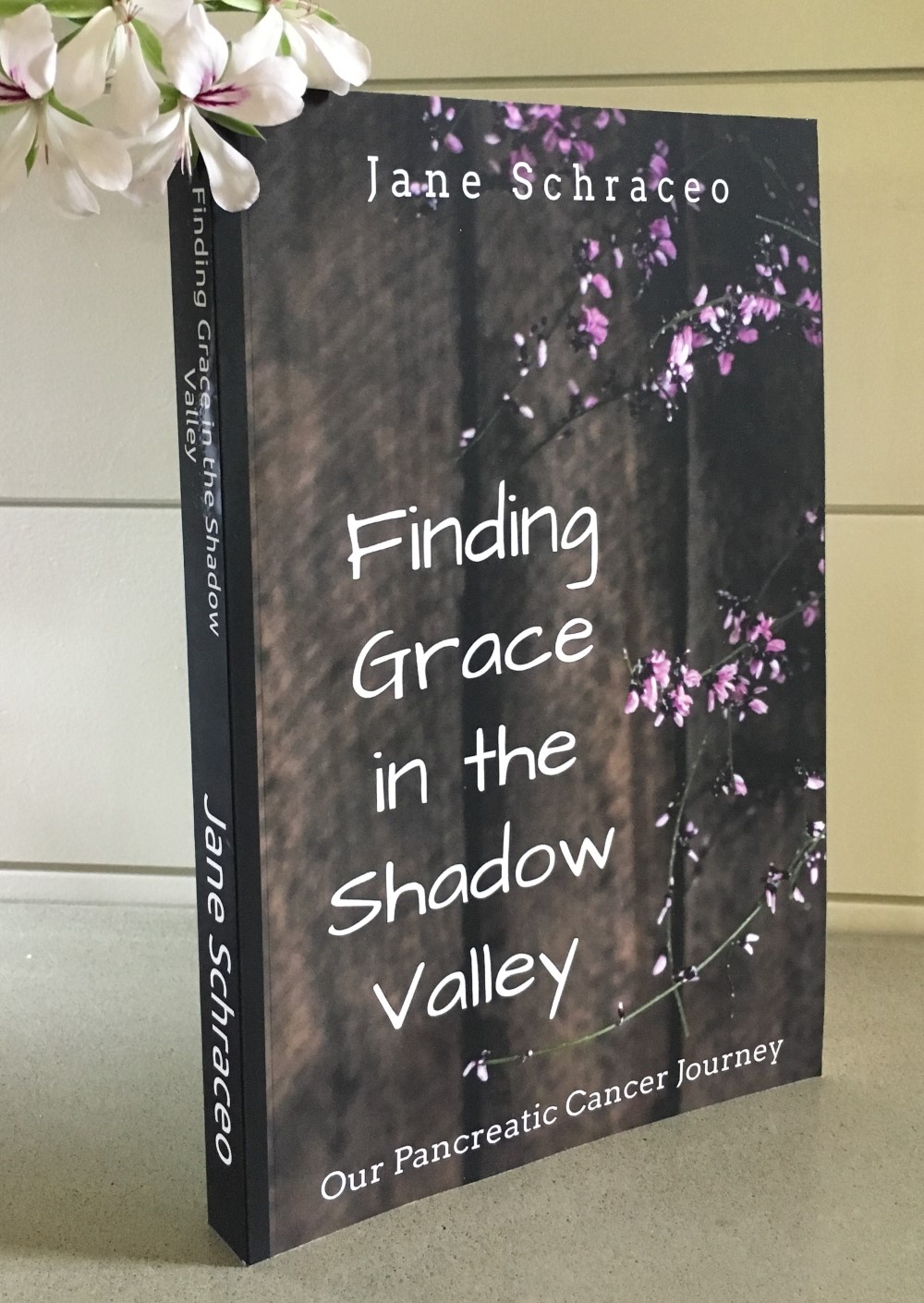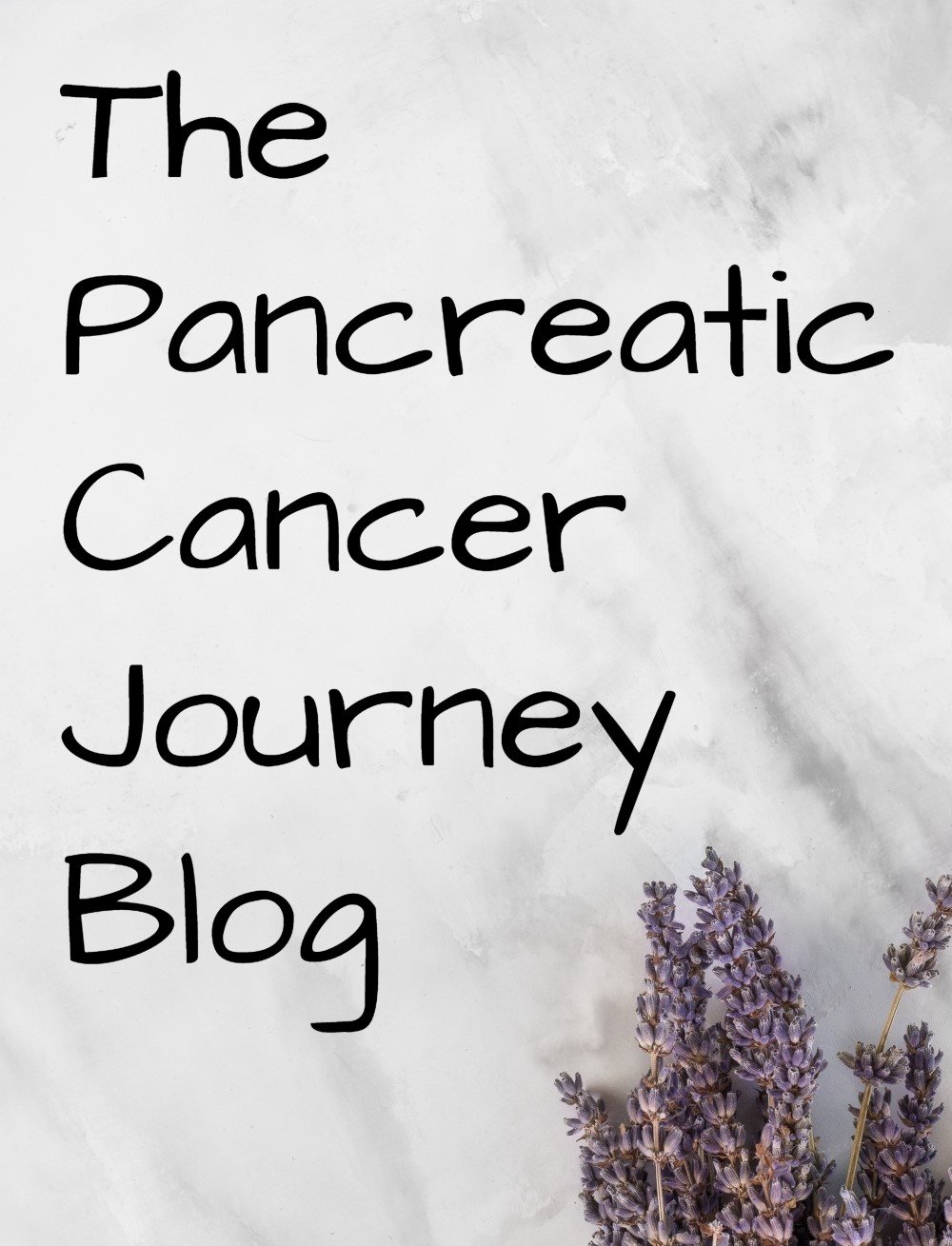End of Life Issues
or
Time to Talk about the Hard Stuff
Pancreatic Cancer is considered a terminal illness for the majority of its patients. Basically it is End of Life as we know it. Mom’s prognosis was no different. Her first oncologist said statistics revealed that most pancreatic cancer patients lived just 3-6 months from the time of diagnosis.
I still remember the horror of that statement. Not only were we reeling from the newness of the cancer diagnosis. We were coming face to face with her mortality, of losing her before we ever got the chance to fight. Just throw us in front of the bus right now. Those first few weeks were a horrible nightmare.
Time gives perspective. And while pancreatic cancer is still a nightmare, we have been able to come to some sort of peace with mom’s ultimate prognosis. And that is a gift of grace and mercy. Somewhere along the line, we realized we were wasting all our precious time crying over her approaching death, ranting and railing at the unfairness, rather than enjoying every blasted minute we had with her. So while we are attacking the cancer with every weapon available, we are also facing and dealing with end of life questions.
And I say, here, that this would not be our choosing. Discussing what mom wants at the end of life is the Hard Stuff. Harder than just about anything we’ve ever talked about. And we’ve talked about a lot of things. Mom put her hand to the wheel and pushed much of this into motion. Finally, we began to understand that handling these issues now, gave mom a calmness, a strength borne of peace, for what lay ahead, enabling her to face her last chapter with grace, dignity, and courage.
It has also been mom’s Best, Last Gift to us. In the beginning I didn’t understand how much I didn’t know. Setting one’s affairs in order is no small task!
Terminal patients who give the gift of final preparations and directions to their family give a gift beyond compare. Knowing mom’s final wishes will make the inevitable so much easier to bear.
This "gift" of the willingness to discuss topics that have often been taboo, or too morbid, hard or uncomfortable will make the difference when the time comes between the peace of knowing her wishes were followed and grieving for that lost time with huge regrets.
These discussions about money, estate planning, health care, and burial can either be done when it is convenient and the patient and family aren't pressured by time, or when the patient is feeble and ailing, time has run out, and the family is scrambling to pull together pieces of information for final arrangements.
Just read the story of Rosaria Vandenberg. Her experience with end of life issues is the cornerstone of Engage With Grace: The One Slide Project. This is a powerfully simple way to get the conversation started, to help ensure that each one of us, and the people we love, can end our lives in the same purposeful way we started them.
Mom, dad, and our family have walked through many of the details of her end of life plans, and we’d like to share some of those details here.
You may not be ready to face these issues. And our solutions may not be yours. This is really all about starting the dialogue. Facing the Hard Stuff. Getting your affairs in order. And finding Peace with your decisions.
If nothing else, having terminal pancreatic cancer has given our family the push we needed to face our fears, put them to rest, and move on with life. As a terminally ill patient, Mom is not going to be “surprised” by death. Preparing for it is just a part of the legacy she wants to leave her family and friends. A deliberate embracing of all it means to live life well, including her final moments.
And, might I mention, that this is still very much a work in progress. We are not “there” yet. We are sharing our journey with as much honesty and transparency as we can. What I share here has come through weeks and months of dialogue. When mom first started talked about funerals, all of us, and I mean, all of us, shushed her and told her she was going to beat this cancer. We didn’t want to hear it. My dad would actually get up and leave the room whenever she brought the subject up. And this frustrated and totally stressed mom out.
We finally began to listen when she went in for the horrific gall bladder surgery in May 2011. She was so sick, that during her stay in the hospital, it really dawned on us that we might not have much time left. Then we were the ones totally stressed out.
What did mom want? Life Support? And if she didn’t pull through – then what? Cremation? Burial? What funeral home? The hushed conversation ebbed and flowed as mom drifted in and out of the morphine-induced stupor.
As she healed from that surgery, we slowly got serious about setting her affairs in order. Some things are still pending and being discussed, but the following is an accurate, account of our journey into the end of life decisions. And remember, this is what is working for our family. Should you be a caregiver or family member of a cancer patient, follow their lead. Not everyone is ready to talk about the end of life. It may too emotional at the moment, or make them feel as if you are giving up on them. Gently ask the questions, but be prepared to put the discussion on hold until they are ready.
These are a few of the things we have been working through:
1) Prepare a will. Actually mom and dad had a living trust prepared several years ago. But in setting things in order, they made sure that we knew where they kept their copy.
2) Discuss and decide on end of life Advance Directives. Mom and Dad have both prepared legal documents that outline their feelings on extraordinary life support. It is important to think this through carefully.
3) Decide on a Hospice Care provider. For me, this was one of the more difficult end of life issues to talk about. This was really “it.” The final chapter of her life. Tears and anticipatory grief tug hard. But this is a huge and necessary arrangement for patients with a terminal illness to deal with. Mom’s oncologist has recommended several hospice organizations for when the time comes, and a neighbor has also suggested one. Mom is in the process of interviewing with the hospice providers and will decide soon.
For those, who hear the word hospice and tune out, just let me say, that hospice is not just for the dying, nor is it about giving up. Hospice is a philosophy of care. The goal of hospice is to help patients live their last days as alert and pain-free as possible, managing symptoms so that a person's last days may be spent with dignity and quality, surrounded by their loved ones. They affirm life and neither hasten nor postpone death. Hospice care treats the person rather than the disease; focusing on quality rather than length of life. And hospice offers a great support for the family and caregivers of the pancreatic cancer patient. For mom, hospice care is an important decision, and I know it will make a difficult transition that much easier. Still it is the Hard Stuff to talk about…
4) Pre-arrange for the funeral and burial. This has taken much thought. For many families it is a no-brainer. Generations of family may be buried in the same cemetery. Family plots may already be arranged. For mom and dad, this was a difficult decision. They wanted to be cremated but didn’t quite know what to do with the ashes. They finally found a small, family cemetery with a beautiful columbarium tower that they liked. Read here for an interesting post about this decision.
Much has been written about preparing for death. And we've collected some beautiful anecdotes, stories and poems about this subject. These can be found here in Preparing for Death by Embracing Life.
5) Contact a local funeral home to arrange for cremation, death certificates and obituary notices.
6) Specify who should receive special/sentimental items. Mom long ago decided that she wanted to give each of her grand-daughters a specific piece of her jewelry collection. So she laid out the pieces on some black velvet, took pictures, wrote their names on the appropriate picture, and then got small jewelry boxes and put the picture in it and a personal note for each grand-daughter. After her death, dad or I will arrange the jewelry to be given as she would want. Difficult to talk about now, but a treasure forever for her grandchildren.
7) Anticipate the waves of grief and tears that will accompany many of these discussions. Our world as a whole is pretty good at denying grief and even denying death whenever possible. We don't teach or even talk about grief much, so consequently, we don't know "how" to do it. But everything you are experiencing is normal. Doesn't make it easier, but perhaps it lets you know that you aren't alone. We are grieving too. We can learn how to do it together.
8) The last end of life issue or question that we’ve been grappling with is a little more difficult to answer, but is definitely a part of the conversation. And that’s what will the afterlife be like. As believers in Christ, we have no doubts that there is life beyond the grave, but one of mom’s biggest questions is, What will it be like? We are often pre-occupied in our talks with the transition from this life to the next. As a nurse, mom saw first hand many patients experience this last walk on their journey, but it remains a mystery for those of us left behind. A dear friend recently gave us a book entitled, Heaven is for Real, that gave much perspective. And also a very real hope and excitement for what is yet to come.
Mom’s pancreatic cancer journey is nowhere near the end. And if our dearest wish is granted, she will find physical healing on this earth and live a rich, full, long life. But if her healing comes only through death, then these end of life decisions will give us a path to follow when the grief overwhelms us.
Grace, dignity and courage. This will be the legacy mom leaves us when the end of life takes her by the hand for the walk she is preparing for. With her gracious permission we will be able to walk with her right up to the end.

Return to Home Page from End of Life Issues
Copyright © PancreaticCancerJourney.com
Nothing on this website should be construed
to constitute medical advice.




